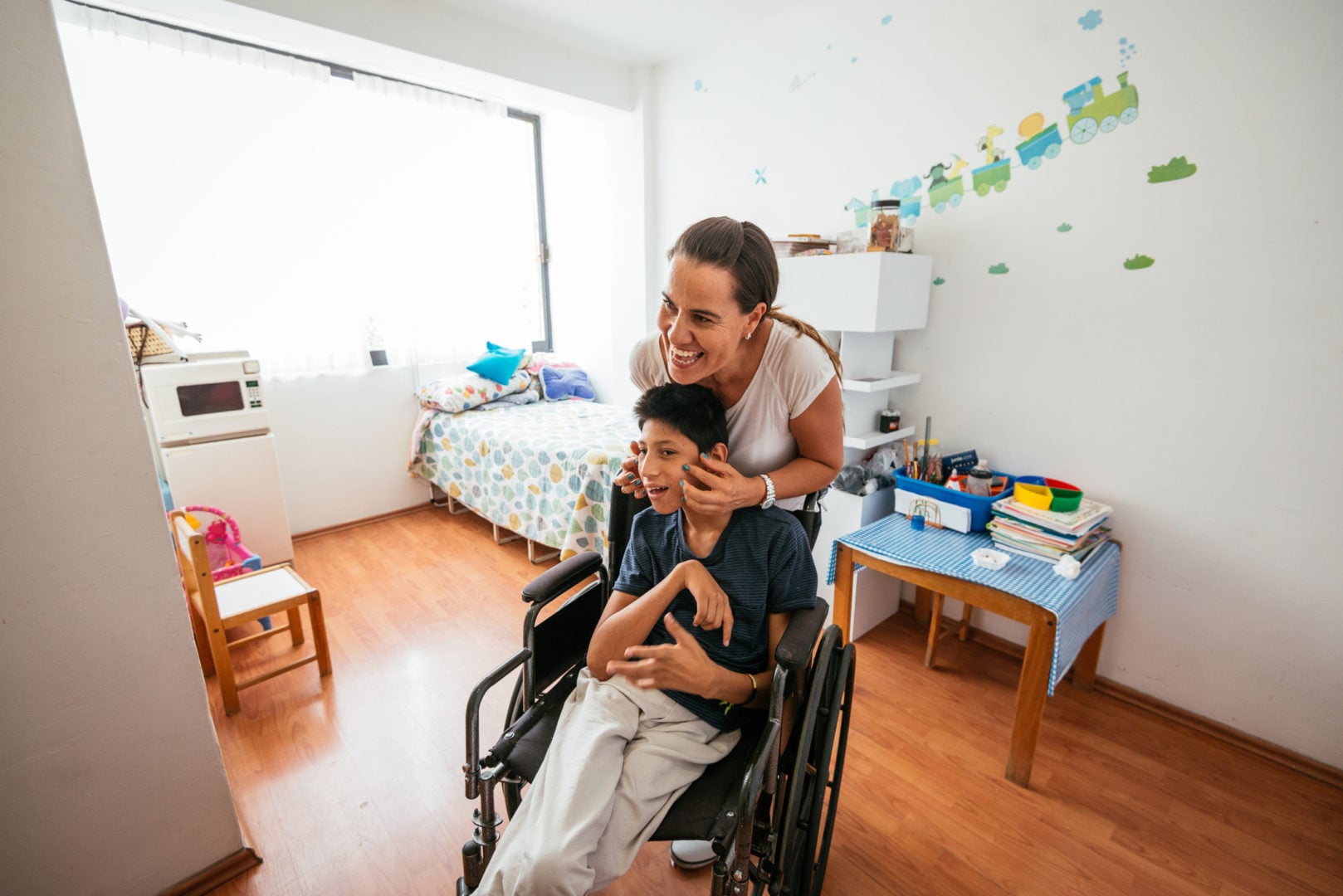In this article
If you’re caring for a child with a disability, it can be easy to feel overwhelmed. Many people around you will assume that you’ll be your child’s sole caretaker around the clock! But you don’t have to be, and in fact, it’s better if you aren’t. If it takes a village to raise a child, the same is even more true when the child has special needs. That’s where children’s respite care comes in.
Key takeaways
- Respite care provides short-term relief for parents and caregivers.
- Respite care for children with disabilities includes day programs, overnight care, hourly caregivers and more.
- Special needs respite care can help parents feel restored, calm and in control.
What is respite care for children with disabilities?
Respite care is when someone else takes over caring for your child for a time — it can be as short as a few hours, or as long as a few weeks — freeing you to meet other obligations, restore your own inner resilience or even simply get a good night’s sleep. Your child needs you to be in top condition — rested, calm and in control. By meeting your own needs, you’ll be helping your child, too. This is particularly important for special needs parents, due to the caregiving demands they often need to meet.
Respite care can be used on short notice to cover an emergency, like an illness or a crisis that calls you away from your child. But it can also be scheduled ahead of time on a regular basis, to give you a reliable breather from constant caretaking. If you’re used to doing all of your child’s care by yourself, using respite care can also help you get used to using professional caregivers — something that may become a larger part of your child’s life as they become older and more independent.
There are many different options for respite care. Sometimes hiring a caregiver for just one task — the morning routine or bath time twice a week — can make everything a little easier for the whole family. You don’t have to go it alone.
Types of children’s respite care
Respite care is very flexible and can easily fit into your family’s schedule. Here are some of the kinds of care you might choose:
- Overnight care: A professional caretaker can come to your home to take over a night shift. Or, there are facilities that will take your child in for an overnight stay.
- Day programs: You drop your child off at a day center for kids with disabilities. They’ll be cared for and engaged in activities throughout the day.
- Summer camp: Many summer camps cater to disabled kids, and they’re a great resource for getting a longer break.
- Respitality: Some organizations will send parents on a weekend vacation while caring for their child.
- Personal care assistance: You can hire caretakers who will come to your home and care for your child for a few hours or more. Some people use an agency while others hire individuals directly.
Where to find respite care for a child with a disability
Whether you’re looking for care in a crisis or exploring options before you need it, there are many places to look for competent care. Here are some places to start:
- Care.com: There are a number of special needs care providers on our site who specialize in respite care. Take a look to see if any special needs care providers match your criteria.
- ARCH respite network: A great resource all around, ARCH administers a federal grant program for respite care. Their Respite Locator page lets you search by state and by your child’s age, and also includes resources on financial aid options.
- State government: Your state probably has a department that oversees aid to families with special-needs kid. Often called a Department of Developmental Services, they’ll be able to refer you to respite care providers near you. They can also help you determine if you qualify for free or subsidized services!. Find your state’s department in this directory.
- Your Local ARC Chapter: The ARC is a national advocacy organization for people with developmental or intellectual disabilities and their families. Your local chapter may be able to refer you to good respite care resources, even if your child’s disabilities don’t fall into those two categories.
- Children’s hospitals: Many cities have designated children’s hospitals that provide respite care services for medically fragile children. You can find one near you with this directory, or ask your child’s doctor.
- Advocacy groups: If there’s a national advocacy group for people with your child’s diagnosis, they will probably be able to direct you to good sources of respite care. United Cerebral Palsy, Easter Seals and the MDA are good places to call.
- Hospice: If your child’s medical condition is life-threatening, you may be able to access respite care from a local hospice organization. Ask your doctor if this is an option for you.
- Friends and family: It might seem to you like you’re the only one who’s capable of taking care of your special needs child — no one else knows exactly how to clean their tracheotomy or understand what they mean when they speak. But in fact, it’s not that hard to train a trusted friend or relative to step in for you. It could be as simple as asking for help.




